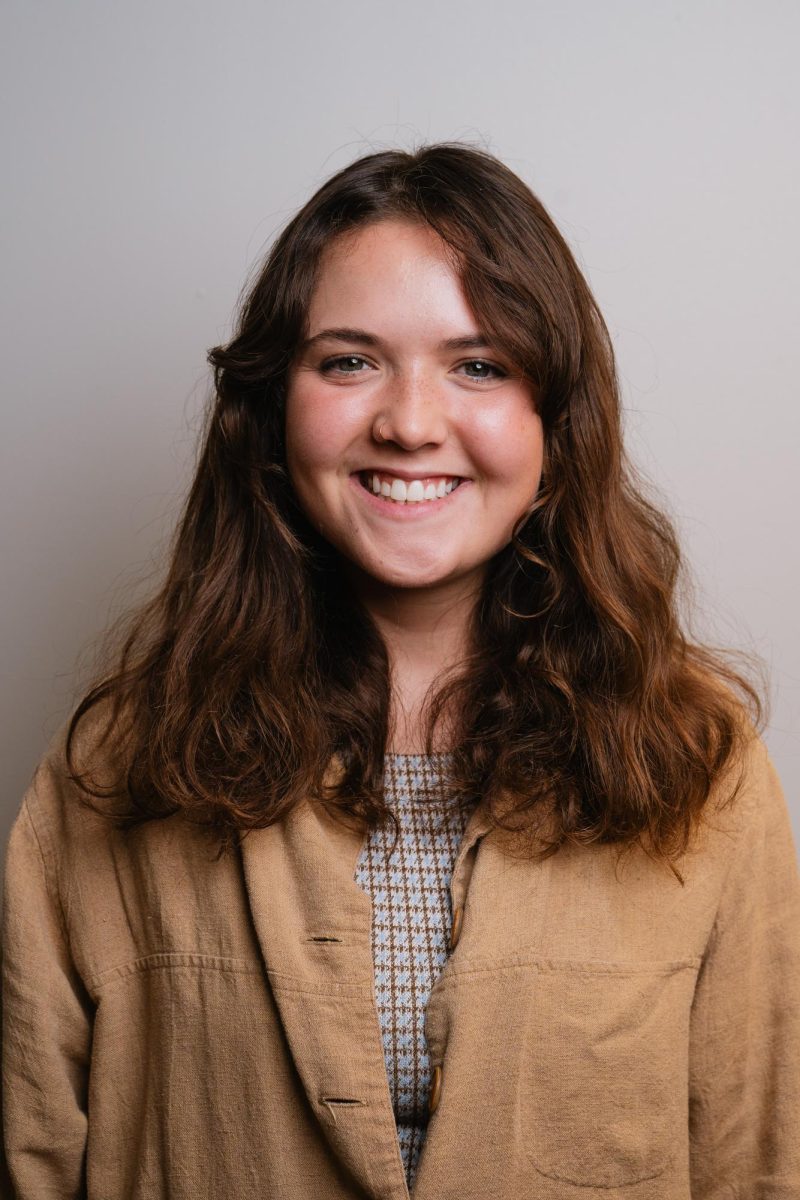Inside the M-Shop
March 27, 2007
The Maintenance Shop is easy to take for granted.
It’s not just a room to study in or yet another room for ISU events – it’s a student-run, independent rock club in the heart of campus.
“Most college venues bring in acts once a week or twice a month for a higher than market value price, and the shows are free for students. The Maintenance Shop, however, brings in bands two to three times a week at a bargain, and charges the students reasonable admission to the show,” said Timothy Hackbarth, former director of the M-Shop and senior in marketing.
“I think the M-Shop model is much more valuable to students because it allows students the opportunity to see amazing music quite often. It also allows the M-Shop to bring in reputable, national, sometimes legendary musicians who would never be caught dead at a traditional college venue.”
The M-Shop is managed by the Student Union Board, which selects two co-directors each year. They are advised in their work by Steve Satterlee, program coordinator for the Memorial Union.
The co-directors have full control, within the rules and regulations of the Union, over running the venue. They are responsible for talking with agents, recruiting acts, booking, setting ticket prices and staying within budget, promotion and advertising, providing hospitality for bands and organizing the mundane activities of the venue on show nights. It sounds like a lot of work – and it is.
“It’s almost like it could be a really well-paying job, if it paid,” Satterlee said. “It’s an ideal position to learn about music and the business.”
The directors also bring some of their own personal visions to the M-Shop, which manifests most obviously in the selection of acts.
This is a feature, not a bug.
“I think it would be difficult to not have something like that,” Satterlee said.
The co-directors for next year, Benjamin Day, junior in pre-journalism and mass communication, and Kabuswe Kay Mwanza, sophomore in community and regional planning, have been training for the position and look forward to the work.
“I have wanted to be a director ever since I started volunteering, so I’m in a state of euphoria over the position,” Mwanza said. “It’s my basically my college dream job.”
However, the co-directors only control the booking of live music for the M-Shop.
“Everything you see in the M-Shop isn’t necessarily an M-Shop show,” Satterlee said.
The venue is also used as a study area, and is rented by student organizations for parties and other shows. ISU Theatre’s production of “Intimate Apparel” is an example of this usage.
Two factors contribute to the M-Shop’s popularity.
The venue is fairly small, keeping it affordable for smaller organizations, but is still large enough for most uses.
Also, the M-Shop has a bar, making it possible for student-run events to serve alcohol.
Satterlee handles the other reservations himself, but points out that the directors get first crack at the schedule – other organizations have to work around the live bands.
The co-directors selected to run the M-Shop for the last year were Abbas Naqvi, senior in mechanical engineering, and Richard Snyder, senior in civil engineering. Snyder applied to continue as a co-director for the next year, but was not selected.
“Ultimately my vision for the M-Shop wasn’t the same as a lot of people of Student Union Board and they decided to bring in relatively inexperienced people to replace me,” Snyder said. “Ultimately I decided that I could not stay in the position for the rest of the semester without losing some integrity and self-respect. After long and careful consideration, I felt as though it was in my best interest, and everyone else’s that was involved, if I stepped down and let the new directors take over immediately.”
Snyder had been focusing on attracting indie bands to the M-Shop, while still maintaining a diversity of acts. He has been working with the M-Shop since November 2004 as a sound technician, and will continue to do so next year.
Naqvi downplayed the relative inexperience of the new co-directors.
“It doesn’t take long to learn any of this, it just takes the drive to do it,” Naqvi said. “The advisors are always there to help and always available in case we have questions.”
Satterlee said the new co-directors were selected over Snyder because they had new ideas and wanted to increase the venue’s exposure. Day and Mwanza have been working with agents, and officially take over the M-Shop on April 30, the first day of Finals Week.
The training is also supplemented by a retreat during the summer to go over issues such as scheduling and how to talk with agents.
“I am looking forward to some high-energy shows, a mix of old and new, known and obscure. Some metal, some indie, a mix of jazz, bluesy jam rock, acoustic, post-punk, new weird America, anything else I might have missed,” Mwanza said. “I would love to see the audience more engaged. Yes, I will even go so far as to encourage dancing at shows. That’s what performers want, you know, to have that connection – you have to let them know you’re feeling their music.”
Day is also confident about the future of the M-Shop.
“I believe they have picked the right two people for the job,” he said.
“This is something that I really want to do and [I] am willing to put the time and effort into it to make it really more recognizable on campus to a broader audience.”
















